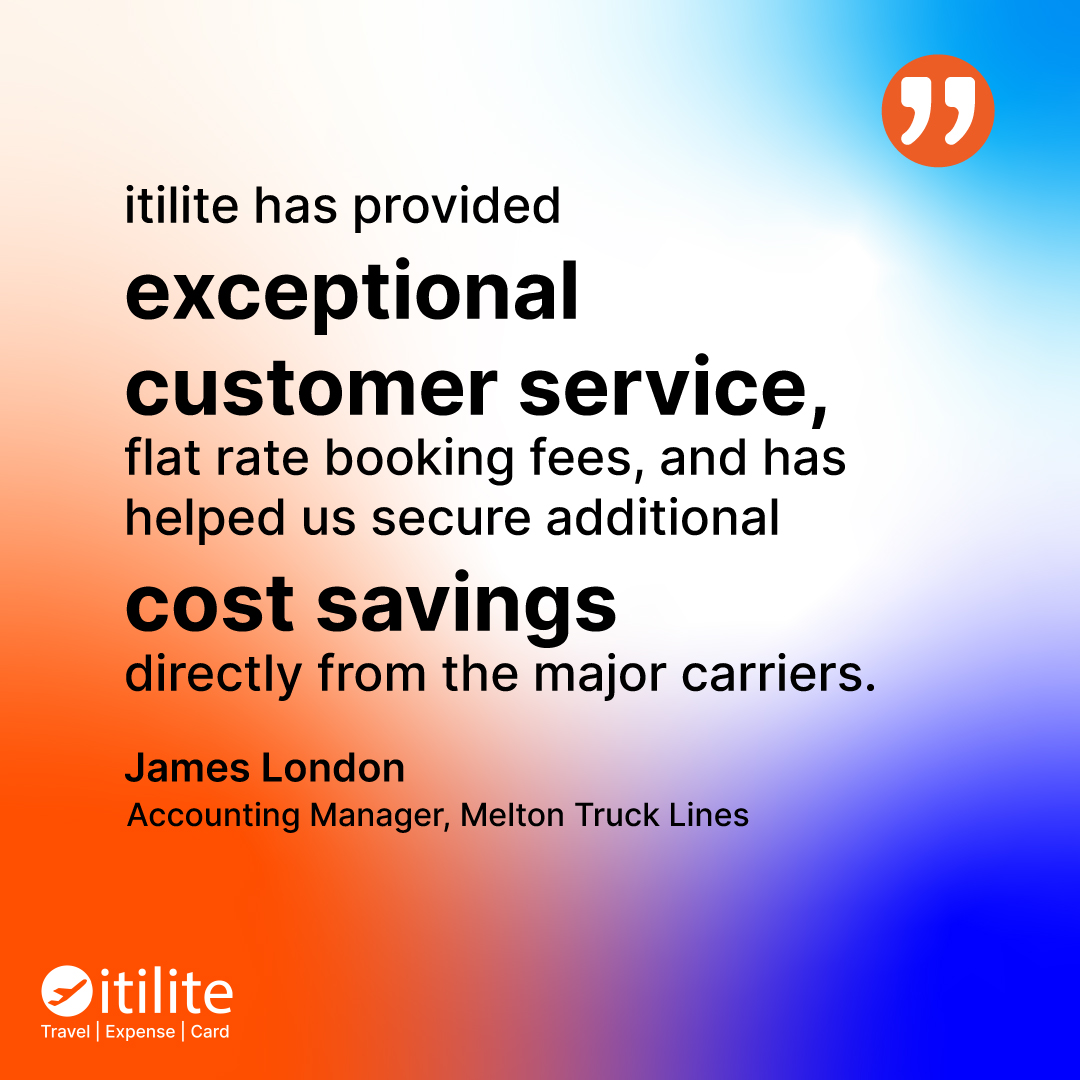
Corporate trips play a crucial role in the consulting sector. They allow professionals to build client relationships and deliver valuable services. Yet, managing the financial aspects of corporate travel can often be challenging, especially when it comes to adhering to a budget.
This blog will discuss important tips for corporate travelers in the US consulting sector. These tips can help corporate travelers optimize expenses, make cost-effective choices, and ensure financial efficiency.
1. Plan and Set a Realistic Budget
Meticulous corporate travel planning is the cornerstone of effective budgeting for corporate trips. Before embarking on any journey, conducting thorough research and establishing a realistic budget is essential. Start by outlining all expenses, including transportation, accommodation, meals, and incidental costs. Factor in trip duration, destination, and consulting work requirements
Establishing clear financial guidelines upfront helps business travelers stay within budget and adhere to company policies. Additionally, planning provides opportunities to capitalize on cost-saving options, such as early booking discounts and bundled packages for flights and accommodations.
2. Optimize Travel and Accommodation Expenses
Transportation and accommodation often make up the bulk of corporate trip costs. Employees can save by being strategic. For air travel, prioritize flexibility, seek discounts, explore alternative airports or dates, and utilize loyalty programs or corporate travel accounts for extra benefits.
Likewise, consider alternative accommodations beyond traditional hotels to reduce costs. Platforms like Airbnb, VRBO, and corporate housing providers offer budget-friendly options, ideal for extended stays or group bookings. Negotiate rates with preferred hotel chains and explore corporate housing near project sites to minimize commuting expenses.
3. Embrace Technology for Expense Management
Technology is crucial in simplifying expense management for corporate travelers in the digital era. Tools like ITILITE enable easy tracking, categorizing, and reporting expenses, providing real-time visibility into expenditure patterns and streamlining reimbursement processes.
Furthermore, integrating corporate credit cards or payment platforms with expense management software improves efficiency and accuracy, ensuring compliance with company policies. Digitizing expense management processes enables consulting firms to monitor spending, identify cost-saving opportunities, and maintain adherence to budgetary guidelines.
4. Exercise Fiscal Discipline During Travel
Corporate trips offer networking and professional development. But, travelers must be frugal and avoid extra costs. Establishing clear guidelines regarding reimbursable expenses and adhering to predetermined budgets is essential to prevent overspending.
Additionally, incentivize prudent spending by implementing per diem allowances or expense caps for meals and incidentals. Encourage employees to use the amenities at their accommodations. These include free breakfasts and fitness facilities. They help reduce unnecessary spending. Consulting firms can optimize resource allocation and boost overall profits by promoting fiscal responsibility among corporate travelers.
5. Evaluate and Adapt Budgeting Strategies
Corporate travel is always changing. Budgeting strategies must be reevaluated and adapted to new circumstances. Conduct post-trip evaluations to assess budgetary measures’ effectiveness and identify improvement areas. Ask business travelers for feedback. Ask about their experiences and the challenges they faced during the trip. This includes any unexpected expenses or budget limits.
Also, analyze expense data and trends. Look for patterns and anomalies. They may require changes to budgeting or travel policies. Consider partnering with travel management companies or experts. They can offer corporate trips insights into best practices and new ways to save. Firms can use a proactive budget approach. It lets them cut travel costs and become more efficient.
6. Utilize Corporate Discounts and Negotiated Rates
Consulting firms often have relationships with vendors, airlines, hotels, and car rental agencies. Take advantage of these partnerships. Use corporate discounts and negotiated rates to get lower prices for travel. Work closely with travel coordinators or procurement departments. They have access to exclusive deals and incentives for business travelers.
Consulting firms can cut costs on travel, lodging, and other extra services by using current partnerships and bargaining for good terms. Stay up to date on any new corporate travel policies or vendor agreements. This will ensure they match our budget goals and maximize trip savings.
7. Minimize Non-Essential Travel Expenses
To contain costs, scrutinize all parts of corporate travel. Find chances to cut non-essential expenses.Encourage employees to do important activities first. They should plan trips to be as short and rare as possible. Use virtual alternatives, like video calls, webinars, and remote collaboration tools. They reduce the need for physical travel for routine meetings or training.
Also, review optional expenses like entertainment, sightseeing, or premium upgrades. Be careful when approving them. Set clear guidelines on allowed costs. Encourage a culture of accountability and resourcefulness among travelers. Consulting firms can allocate resources better. They can boost their profits by cutting non-essential travel costs.
8. Monitor and Manage Travel Policy Compliance
A strong travel policy is key for budget management. It is a core part of the consulting sector. However, ensuring compliance with established policies requires proactive monitoring and enforcement mechanisms. Use travel management platforms or expense systems. They help you watch for policy violations and flag non-compliance in real time.
Review and update travel policies often. Do this to match changing business needs, rules, and trends. Keep providing ongoing training and support to travelers. Teach them about policy rules, allowed expenses, and how to document them. Add automated approval workflows and audit trails. They will streamline expense approval. But, they will keep the process transparent and accountable.
Consulting firms can mitigate financial risks by promoting adherence to travel policies and fostering a culture of compliance. This will reduce unauthorized expenditures and optimize trip budgets.
9. Explore Alternative Transportation Modes
Air travel is the default for corporate trips. But, considering other options can save a lot. This is especially true for shorter or US regional trips. Consider using ground transportation. This includes trains, buses, or carpooling. Use them for city or inter-city travel, especially in areas with good transit.
Also, see if you can combine many places into one trip. This will save money on transportation. Employees can use public transit or ride-sharing for local commuting. This reduces their need for taxis or rental cars. Consulting firms can lower travel costs by diversifying how they transport and by optimizing routes. They can do this while keeping operational flexibility.
10. Negotiate Flexible Booking Terms and Cancellation Policies
In the dynamic landscape of corporate travel, flexibility is paramount. Negotiate flexible booking terms and cancellation policies with vendors. This is to accommodate unforeseen changes or disruptions in travel plans. Prioritize arrangements that offer penalty-free cancellations or allow for rebooking without high fees. They give business travelers peace of mind and protect them from unexpected expenses.
Also, use the combined bargaining power of consulting firms. Use it to get good contract terms with travel providers. These terms should include rules for last-minute changes, upgrades, or free amenities. Stay informed about industry developments. Watch for emerging travel booking and cancellation policy trends. They create new opportunities to save money and reduce risk.
Make Your Corporate Trips more Seamless with Good Budgeting
Good budgeting is key for US consulting sector trips. It ensures the best use of resources and meeting financial goals. Firms can use many budgeting tips. These can help them navigate the complexities of corporate travel. The tips also help them maximize savings and value for the organization and its travelers.
One innovative solution that can significantly streamline budget management and enhance cost control measures is ITILITE. As a comprehensive corporate travel management platform, ITILITE offers consulting firms tools and features designed to optimize corporate travel expenditure and streamline expense management processes.
By leveraging the intuitive interface and robust functionality, consulting firms can easily gain real-time visibility into travel expenses, track compliance with corporate travel policies, and identify cost-saving opportunities.
To know more about ITILITE, contact our product experts now!


















